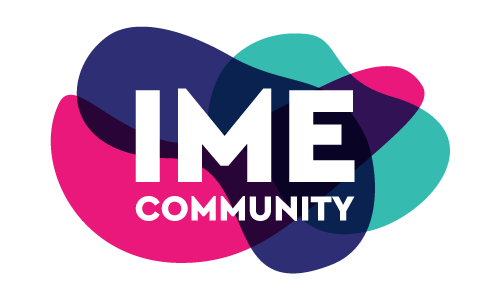So, you just left your doctor’s office and they showed you and your teen the growth charts and BMI% that shows they are in the overweight or obese category.
Maybe this isn’t news or maybe it is? It can be a real shock to the system.
Some of the things that may be coming up for you are:
Alarm, anxiety, fear that this conversation or anything you say will cause harm?
Most likely you are feeling a twinge of guilt or shame or worry or denial.
Maybe you aren’t concerned?
Maybe you have a lot going on in your life and this is literally the least or not even a worry for you?
Maybe everything is going great for your teen right now and you don’t want to rock the boat?
With COVID, we all need to give ourselves a break, so a little weight gain is nothing to be concerned about?
There are no wrong ways to react or feel in any situation. All feelings that are coming up are real. Thoughts create feelings which drive our actions and our results. Current thinking creates your current reality. If you feel powerless, hopeless, defeated, shame, guilt, denial, blame, judgment, worry, calm, helpful, interested, curious, hopeful, whatever it is you’re feeling, recognize that feelings come from your thoughts and not your teen’s measurements or anything the doctor tells you about your teen’s health.
Shamebusters/Mythbusters:
You don’t cause and you don’t control: our children and teens are not puppets on a string that we control. Hopefully, we’ve learned that by now. Our teens let us know this, don’t they? Mine do. There are a lot of causes to the epidemic of childhood obesity in the U.S., but if we narrow it down to one cause, the singular cause is our food system. Diets don’t work and they often cause harm. Low-calorie and low-fat haven’t been helpful and often fight our natural physiology and can be grueling and feel rigid and restrictive.
I encourage you to listen to my podcast (#7) that I call Shamebusters: My Weight Journey and also read my IME blog called No Before and No After to learn about my weight journey. My hope is you will feel some relief and have some compassion and grace for yourself and your teen as you understand that it’s not helpful to blame ourselves as individuals. Shame and guilt are natural human emotions and we can learn to process and respond, without reacting with judgment that will keep us stuck and buffering our emotions with food.
So, what works?
Studies show there are protective factors to prevent both eating disorders and unhealthy weight gain:
- Promote positive body image
- Family mealtimes
We’re always talking about how we all come in different shapes and sizes and that pertains to us parents too. No matter where we are on our health journey or with our eating and activity levels, we can all do what the studies show are helpful. Come on, Parents, don’t argue with science! I’ll always blind you with science. In other words, we can all promote positive body image and intentionally work to increase our family mealtimes.
We’ve been trained to think that we need to be role models for perfect eating. That isn’t helpful thinking because perfect doesn’t exist and keeps us in all or nothing thinking and feels powerless and helpless. The only role-modeling I want to encourage you to focus on, and I never waste your time, is to role-model self-compassion. Actually, role model imperfection too and show you aren’t going to pile on yourself, beat yourself up, criticize, restrict, and punish yourself, or make it mean anything about you as a parent or person when things don’t go your way.
We are all humans on a human journey and we need to have grace and compassion for ourselves and that starts with us as parents. We all love and want what’s best for our children no matter what. We want to prevent suffering for them, but we all know that is living in la la land (I’m not talking that awesome movie with Ryan Gosling and Emma Stone, though now I really want to watch it. No, must work). We don’t cause and we don’t control all of the things. Even when everything is going great for our teen, we’re not controlling that either! Whoa! My mind was blown when I started my life coaching journey and learned that little tidbit.
Let’s be compassionate because even this blog and my podcast and YouTube video will be activating for most of us. That’s okay. Just note that those are just thoughts coming up for you and try a better thought while you’re listening, like, “I’m listening and learning and showing up as a loving and supportive parent.” “I don’t have to fix or solve anything.” “I’m curious and wanting to create a positive and fun way forward.” “I believe in my teen’s unlimited potential.” “Nothing is going wrong.” “I’m a loving parent who tries my best at the time.”
Check out my 5 Keys for Parents to Support Your Teen’s Health Independence. Listen to the podcast and YouTube video and stay tuned for the IME Community FB group for parents coming soon! Below is a list of ways to help you as a parent promote positive body image in your child/teen (created for teachers and parents by The Student Body). Make sure you encourage your teen to sign up for the IME member Community!
Parents’ role in promoting a positive body image
Parents and caregivers play a crucial role in the development of children’s attitudes and behaviors. Although a child’s body image can be influenced by their peers, the media, and other adults in their lives, it is parents who help to build a strong foundation for their child.
Before helping your child, it is important to understand your own attitudes towards food, exercise and your body. As a parent or caregiver, what messages are you sending?
- Are you dissatisfied with your shape, size, and weight? Do you talk about this?
- Are you always on, or going on, a diet?
- Do you express guilt when you eat certain foods?
- Do you make negative comments about the way other people look?
Tips for promoting a positive body image in your child/teen
- Place less emphasis on your child’s appearance and more on their abilities and skills.
- Be a role model by accepting your body and maintaining a positive attitude towards food and exercise.
- Make time for family meals and enjoy the time spent together.
- Encourage your child/teen to think critically about messages and images they see and hear in the media.
- Help your child/teen understand that their body will change, especially throughout puberty.
- Promote activities that make your child/teen feel good about themselves and that don’t focus on their appearance.
- Teach your child/teen that it is OK to show emotions such as sadness, anger, and frustration.
For more information on promoting a positive body image in your child, visit The Student Body, a resource for teachers and parents.

